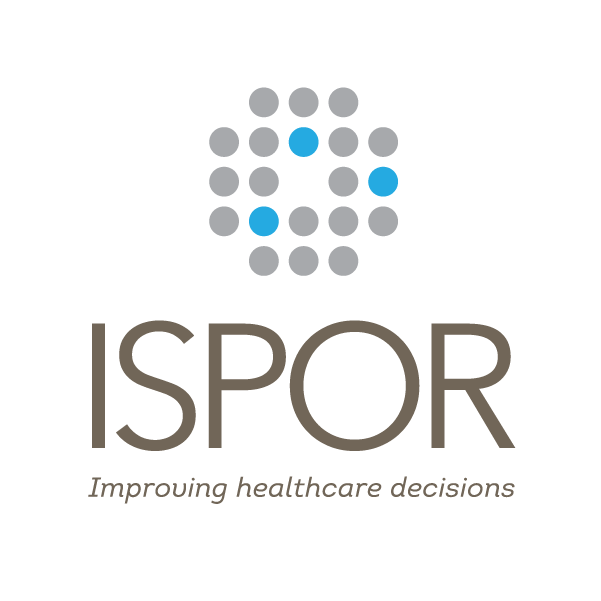Newswise — Boston, MA—May 22, 2017—The International Society for Pharmacoeconomics and Outcomes Research (ISPOR) held two scientific sessions on value assessment frameworks this afternoon at its 22nd Annual International Meeting in Boston, MA, USA.
Value assessment frameworks are developed to help health care decision makers evaluate potential therapeutic options based on health outcomes, value to the patient, and effectiveness compared with other potential treatment options. These value frameworks can influence what therapies are chosen by patients, clinicians, and payers, and whether those therapies will be made available and be reimbursed by payers.
The ISPOR Initiative on US Value Assessment Frameworks was created to help inform the shift towards a value-driven health care system by promoting the development and dissemination of high-quality, unbiased value frameworks. Recognizing that the currently available value frameworks were widely diverse in their approaches and that these inconsistencies could lead to variable evaluations of treatments, ISPOR launched this Initiative to cultivate relevant perspectives from key health care stakeholders to develop appropriate approaches that were transparent and methodologically sound.
The Initiative’s Special Task Force has produced a scientific policy white paper to support the construction and use of high-quality value frameworks with the objective of facilitating more efficient health care decision making in the United States. The main emphasis of this white paper is to help public and private insurers make better decisions about whether and how to cover new health care technologies and to help individual patients make better decisions about their health and their treatment choices. The final white paper will be published in a special themed section of Value in Health, the official journal of ISPOR, later this year.
In one of these sessions, an invited issue panel discussed the key points and recommendations of the Special Task Force’s scientific policy white paper. The session, ISPOR’s Special Task Force Report on US Value Assessment Frameworks: What Does It Say and Is It Helpful? [IP4], was moderated by Peter J. Neumann, ScD, Director, Center for the Evaluation of Value and Risk in Health, Tufts Medical Center, Boston, MA, USA. Speakers for the session included:
- Louis P. Garrison, PhD, Professor, Pharmaceutical Outcomes Research and Policy Program, School of Pharmacy, University of Washington, Seattle, WA, USA
- Eleanor M. Perfetto, PhD, MS, Senior Vice President, Strategic Initiatives, National Health Council, and Professor, Pharmaceutical Health Services Research, University of Maryland School of Pharmacy, National Health Council, Washington, DC, USA
- Edmund J. Pezalla, MD, PhD, MPH, Chief Executive Officer, Enlightenment BioConsult, LLC., Wethersfield, CT, USA
- Adrian Towse, MA, MPhil, Director, Office of Health Economics, London, UK
The panel then discussed the white paper’s contributions and limitations from the perspective of three key stakeholder groups—patients, payers, and non-US audiences. Special focus was spent on how well the white paper currently captures the issues patients value, if it would be useful to and be used by payers, and if it added value to what leading non-US countries with health technology assessment bodies have already taken into account for value frameworks.
The second session, ISPOR’s Special Task Force Report on US Value Assessment Frameworks: A Deeper Dive Into Its Health Economic Underpinnings (W5), was led by a discussion panel including:
- Jalpa A. Doshi, PhD, Associate Professor of Medicine, Director, Economic Evaluations Unit, Center for Evidence-Based Practice, Director, Value-Based Insurance Design Initiatives, Center for Health Incentives and Behavioral Economics, University of Pennsylvania, Philadelphia, PA, USA
- Darius N. Lakdawalla, PhD, Quintiles Professor, Pharmaceutical Development and Regulatory Innovation, University of Southern California, Los Angeles, CA, USA
- Charles E. Phelps, PhD, MBA, Professor and Provost Emeritus, University of Rochester, Gualala, CA, USA
- Mark V. Pauly, PhD, Bendheim Professor and Professor of Health Care Management, The Wharton School, University of Pennsylvania, Philadelphia, PA, USA
In this session, discussion leaders provided a detailed overview of the key health economic considerations that drove the recommendations contained in the white paper. The speakers reviewed value elements (e.g., the “value of hope”) that could be included in a value framework conceptual model, and compared different methodological tools that could be employed in these frameworks. The session also explored specific decision-making considerations that can come into play such as thresholds, opportunity costs, and affordability issues. Panelists also discussed the differences in these considerations for public versus private plans.
Additional information on the ISPOR Initiative on US Value Assessment Frameworks can be found here. Information on the ISPOR 22nd Annual International Meeting can be found here. Released presentations from the conference can be found here. Interested parties can follow conference news at ISPOR’s press site and on social media using the conference hashtag #ISPORBoston.
###
ABOUT ISPOR
The International Society for Pharmacoeconomics and Outcomes Research (ISPOR) is a nonprofit, international, educational and scientific organization that promotes health economics and outcomes research excellence to improve decision making for health globally.
Web: www.ispor.org | LinkedIn: http://bit.ly/ISPOR-LIn | Twitter: http://bit.ly/ISPOR-T (@ISPORorg) | YouTube: http://bit.ly/ISPOR-YT | Facebook: http://bit.ly/ISPOR-FB
ABOUT ISPOR GOOD PRACTICES FOR OUTCOMES RESEARCH TASK FORCE REPORTS
ISPOR has earned an international reputation for research excellence based, in part, on its Good Practices for Outcomes Research Task Force Reports. These highly cited reports are expert consensus guideline recommendations on good practice standards for outcomes research (clinical, economic, and patient-reported outcomes) and on the use of this research in health care decision making. ISPOR Task Forces are comprised of subject matter experts representing different stakeholders from diverse work environments (i.e., regulators, payers, manufacturers, technology assessors, etc. from research, government, academic, and industry sectors around the world). All ISPOR Good Practices for Outcomes Research Task Force Reports are published in the Society’s scientific journal, Value in Health, and are made freely available as open access articles as part of the Society’s mission.
